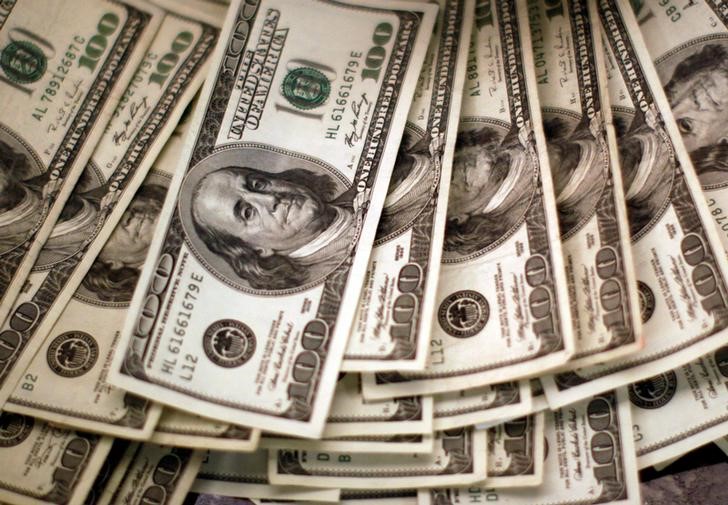By Anirban Nag
LONDON (Reuters) - The dollar index was a tad lower on Friday, and on track for its worst week for a month after the Federal Reserve trimmed its long-term rate expectations and the Bank of Japan retooled its monetary policy framework.
In Europe, data showed eurozone business activity expanding in September at its weakest pace since the start of 2015. But it was little surprise and had limited impact on policy expectations and the single currency.
The dollar index was subdued at 95.397 (DXY), while the euro was up 0.1 percent against the dollar at $1.1215
"The Fed lowering its medium-term rate guidance path while keeping a rate hike in play at the end of this year has left the dollar very finely balanced," said Yujiro Goto, currency strategist at Nomura.
The Federal Reserve projected a less aggressive rise in rates next year and in 2018, and cut its longer-run interest rate forecast to 2.9 percent from 3.0 percent.
Traders said the focus was moving to the first televised U.S. presidential debate early next week. Markets are mostly expecting Democratic candidate Hillary Clinton to win the presidency and have not factored in the implications of a victory for Donald Trump.
"Indeed, we believe that the markets are rather complacent about the outcome of the elections and expect growing uncertainty ahead of the 8 November vote to add to the dollar headwinds," Credit Agricole (PA:CAGR) analysts said in a note.
YEN FIRMER
The yen was on track to finish higher on the week against the dollar and the euro. This was after the BOJ shifted to targeting interest rates on Japanese government bonds as the focus of its massive monetary easing program, dropping its explicit target of increasing base money.
The BOJ's announcement initially sent the dollar up more than 1 percent to 102.79 yen, though the gains unraveled as investors realized that the central bank would still have an uphill task to push inflation towards its 2 percent target.
The dollar's proximity to the 100-yen level did not escape the attention of Japanese authorities, who do not want the yen to rise sharply.

"We're concerned about recent extremely nervous moves in the currency market," Chief Cabinet Secretary Yoshihide Suga told a regular news conference on Friday.